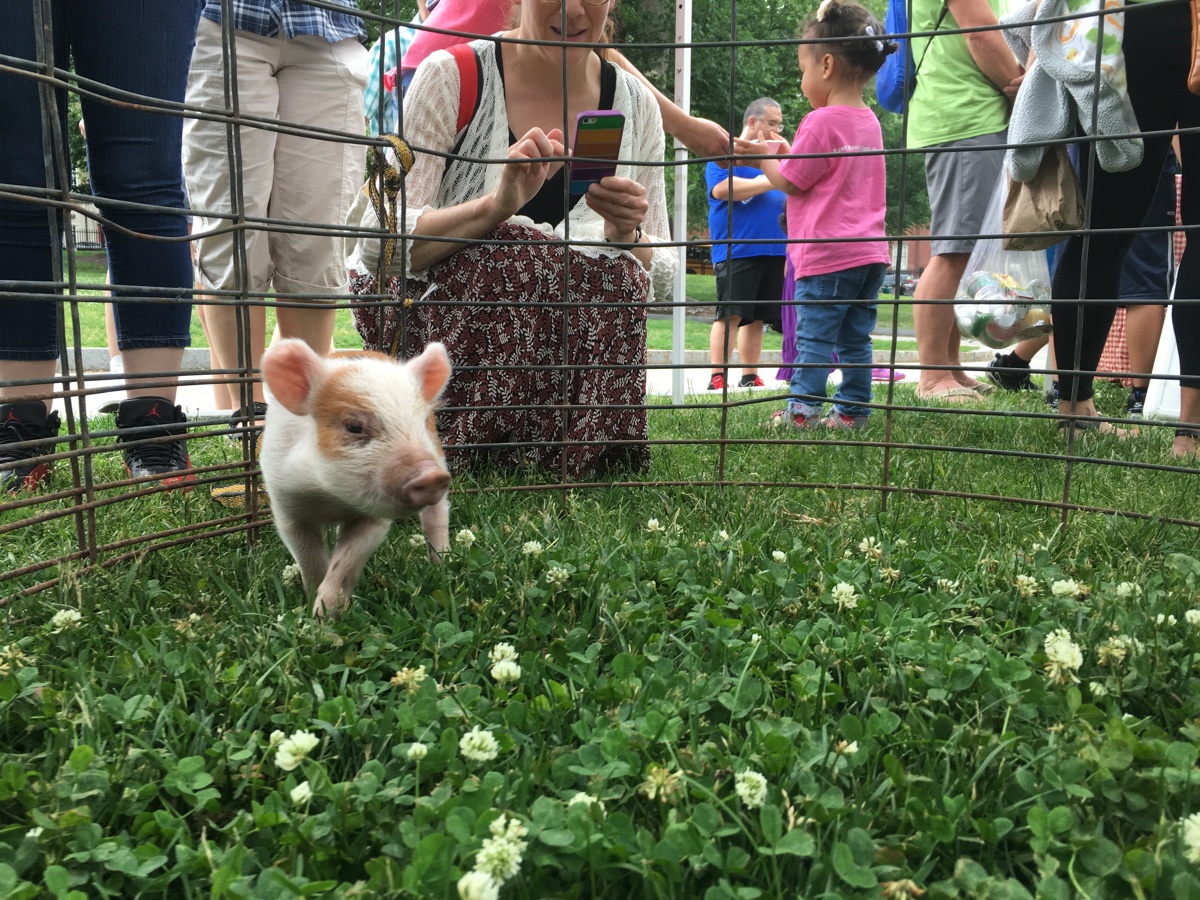Hey, There’s a Cow on the Boston Common

Photo by Kyle Clauss
The Boston Common started as a cow pasture in the 17th century, attracting so many affluent families’ bovine at one point that grazing was capped at 70 cows at a time in 1646. Mayor Harrison Gray Otis banned cows from the Common two centuries later, and since then, you’d be hard-pressed to find a Holstein Friesian noshing on the ryegrass.
The Massachusetts Farm Bureau, the state’s largest farming nonprofit, brought the above-pictured Red and a few friends to America’s oldest park Tuesday to draw attention to agriculture legislation working its way through the State House, including estate taxes, GMOs, the humane treatment of livestock, and raw milk.
Good pitch: "We'll be right below the State House. You can't miss us; we're the ones with the cows." pic.twitter.com/wZzWuiJC1c
— Katie Lannan (@katielannan) June 7, 2016
“A lot of people don’t know where their food comes from,” says Mass. Farm Bureau’s Brad Mitchell. Events like Tuesday’s popup petting zoo allow Beacon Hill lawmakers to meet the farmers affected by the legislation and ask any questions they might have.

Photo by Kyle Clauss
Red, a one-year-old Hereford, was joined by alpacas Cuzco and Tina, a runty piglet named Wilbra, and two baby goats born just 20 hours prior to their Park Street debut.
“This is the friendliest of the friendly animals we have,” says Ryan McKay of Holden’s Lilac Hedge Farm, one of the farms with a permanent stand in the nearby Boston Public Market.

Photo by Kyle Clauss

